China Broker
Your Reliable China Broker
We offers efficient China customs clearance services, ensuring smooth import/export operations with minimal delays. Trust our expertise to handle all paperwork and streamline your supply chain, saving you time and costs.
Mbmlog: Your Best China Broker and Forwarder
Mbmlog’s team excels at navigating the complexities of customs clearance in China, acting as a trusted broker for both export and import shipments. We understand the critical importance of time and efficiency in international trade, which is why we complete the brokerage process swiftly, minimizing delays and ensuring your goods move seamlessly through customs. Plus, Mbmlog handles all the necessary paperwork, so you can focus on your core business.
Whether you are a Chinese trader or an international buyer, having a reliable broker is essential to your supply chain. Mbmlog is recognized as one of the most trusted partners in the industry, known for our commitment to reliability and excellence in service. Our clients consistently achieve faster clearance times and reduced shipping costs, thanks to our expertise and deep industry connections.
Join the many satisfied businesses who trust Mbmlog to streamline their shipping processes and ensure smooth, hassle-free customs clearance. Contact us today to discover how we can be your dependable partner in China.
Our Services

Air Freight
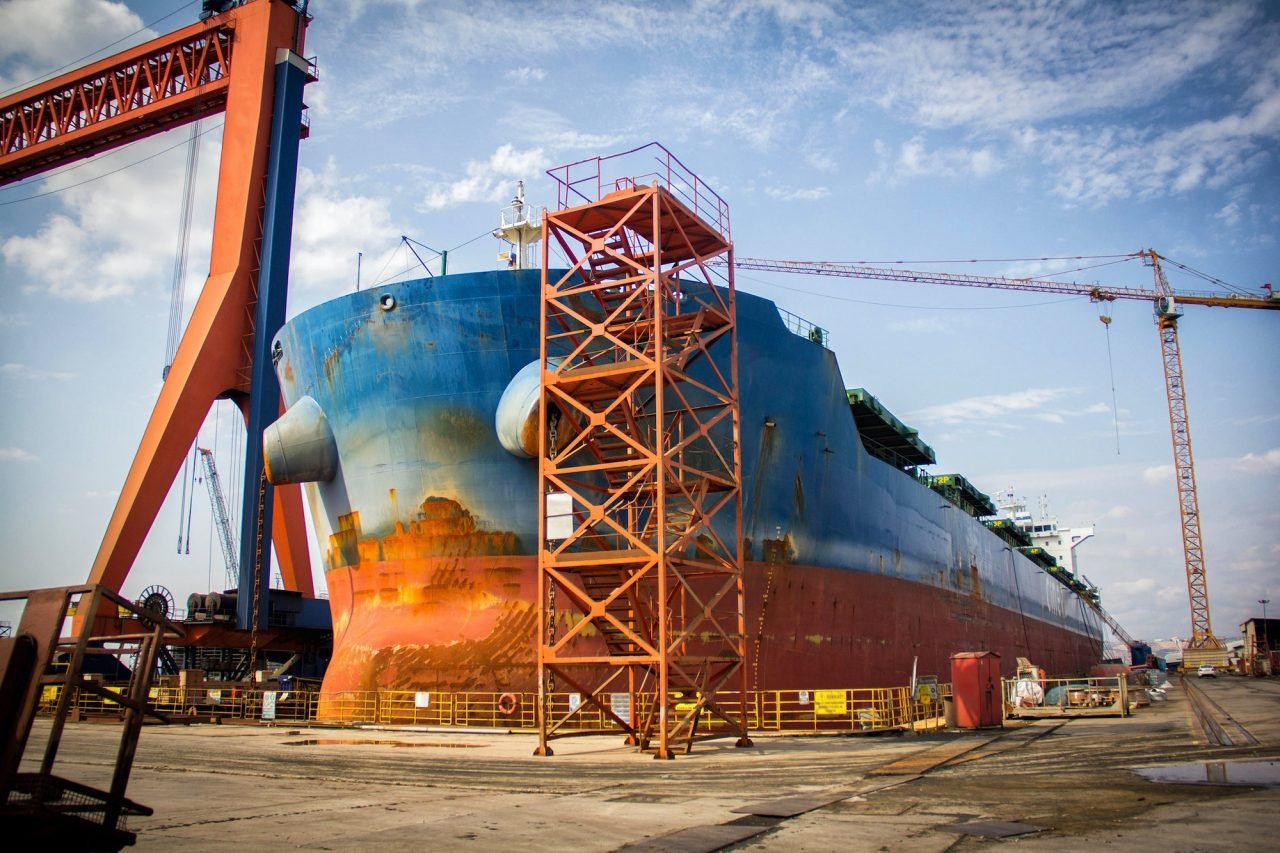
Sea Freight

Rail Freight

Dangerous Goods
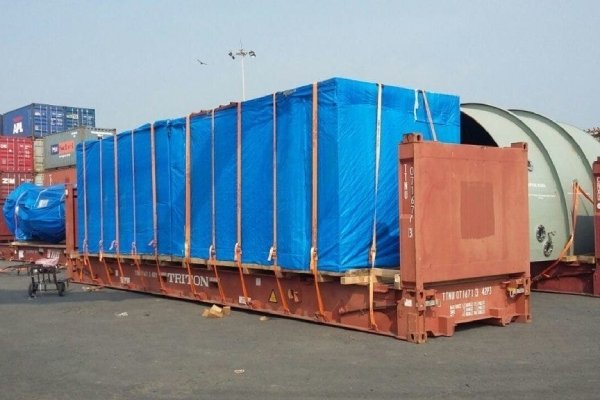
OOG Shipping
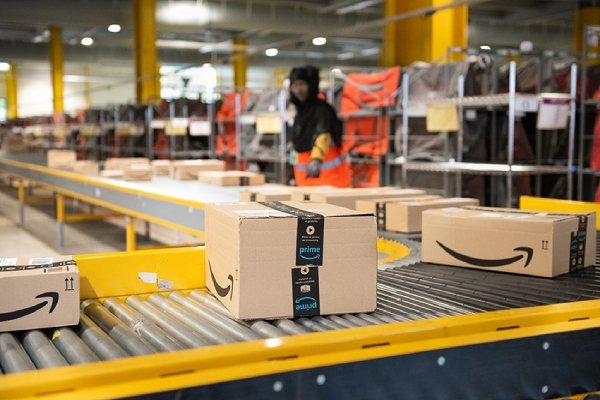
Amazon FBA Shipping
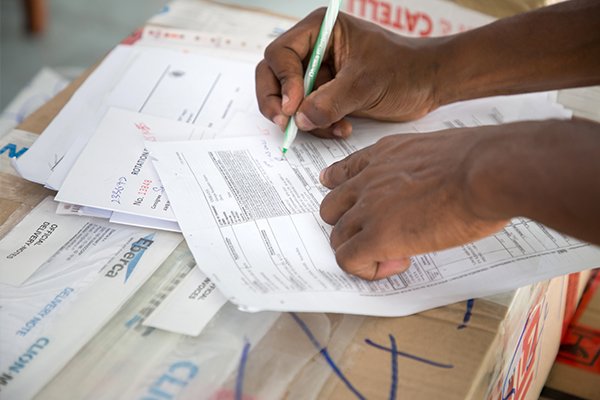
Custom Clearance
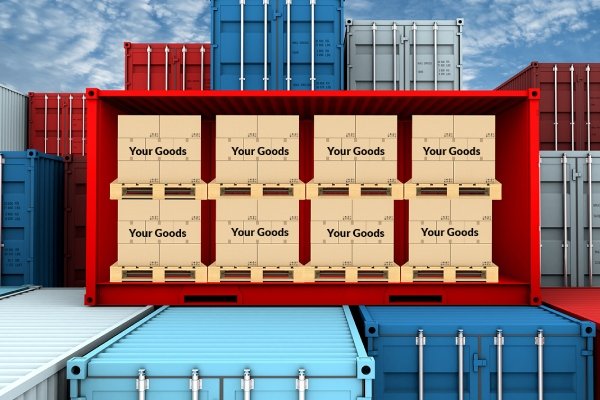
LCL Shipment
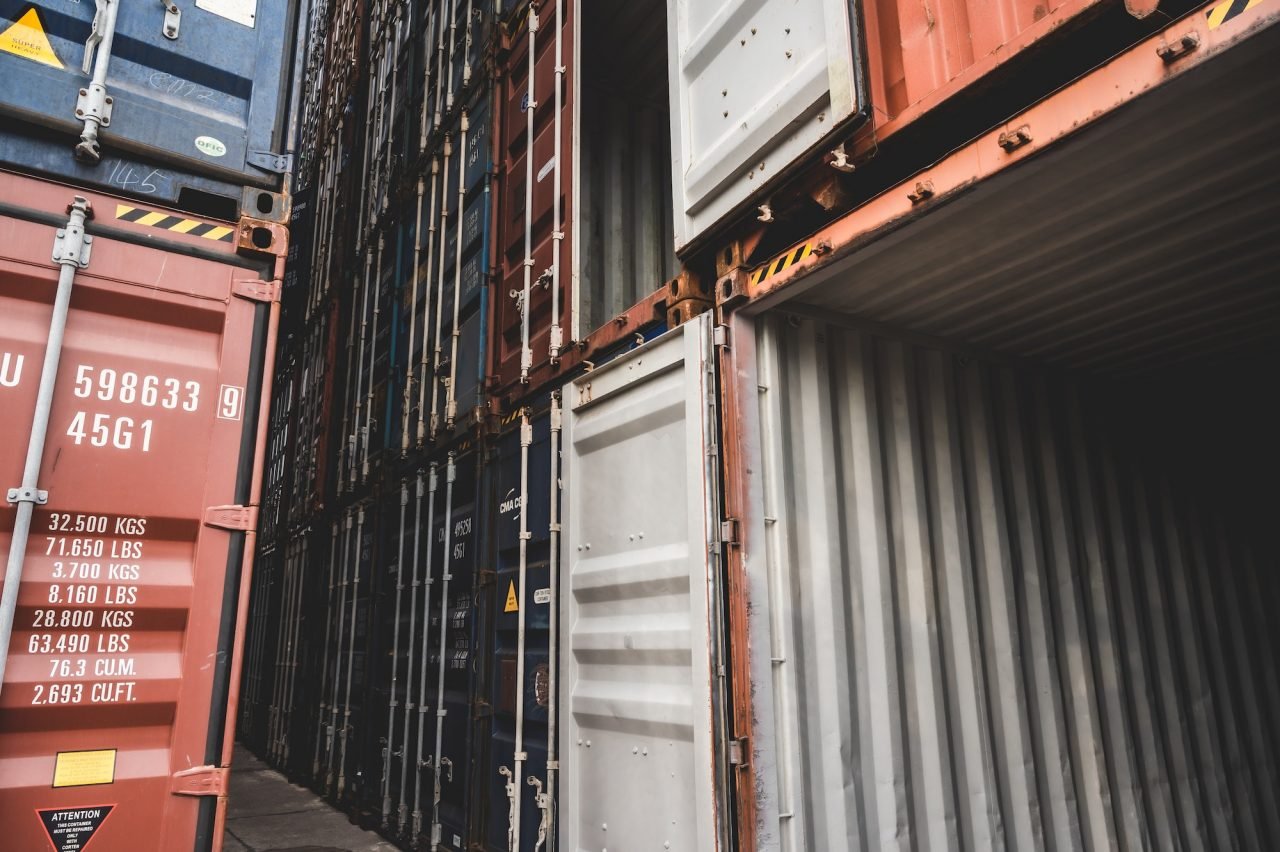
FCL Shipment
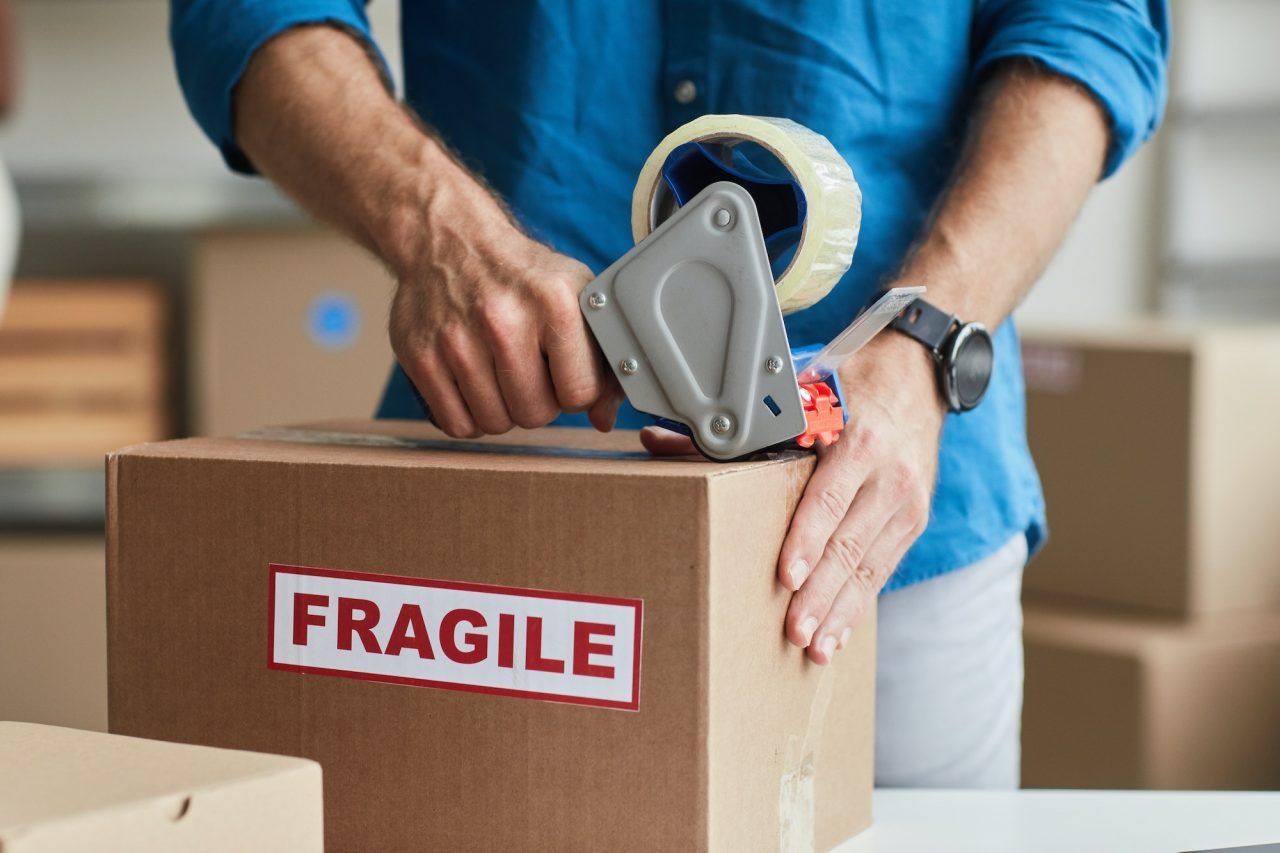
China Broker

Door to Door Shipment

Pick Up & Delivery
Why Choose MBM ?
Experience the benefits of smooth moving
By choosing mbmlog, you gain competitive pricing, reliable and timely deliveries, and 24/7 expert support. Benefit from our 20 years of experience, seamless customs clearance, and free warehouse storage, ensuring your logistics are efficient, cost-effective, and worry-free.
20 Years Expertise
Mbmlog offers unparalleled logistics solutions. Our extensive experience ensures efficient, reliable services tailored to meet your diverse shipping needs.
Free Warehouse
Enjoy up to 30 days of free warehouse storage with mbmforwarding. Our secure, well-organized facilities ensure your goods are stored safely.
24hx7 English Speaking Expert Supports
We provides 24hx7 English-speaking expert support, ensuring seamless, efficient communication and immediate assistance for all your logistics requirements.
Cargo Insurance
Our company offers comprehensive cargo Insurance services, protecting your shipments with tailored insurance options, ensuring safety and peace of mind during transit.
On Tracking Services
Mbmlog's on tracking services provide real-time updates on your shipments, ensuring you always have accurate information about your cargo's status.
Professional Custom Clearance
Our professional custom clearance services guarantee smooth, efficient processing. Our expert team handles all documentation, ensuring compliance with regulations.
The Ultimate Guide
How to Find the Best China Broker: A Comprehensive Guide
Table of Contents
In the era of globalization, China has emerged as a dominant force in the manufacturing world, producing a vast array of products for global consumption. Whether you’re an established business or a startup, sourcing products from China can provide significant advantages in terms of cost, quality, and variety. However, the complexities of navigating the Chinese market, dealing with suppliers, managing logistics, and ensuring compliance with international trade regulations can be overwhelming. This is where a professional China broker comes into play.
A China broker acts as a vital intermediary, bridging the gap between you and the Chinese suppliers. They handle everything from product sourcing to quality control, negotiations, logistics, and even legal compliance. Choosing the right broker can make the difference between a successful venture and a costly mistake. But how do you identify the best broker for your needs? What should you look for in terms of qualifications, experience, and reputation? How do you ensure they are trustworthy and capable?
This comprehensive guide is designed to answer all these questions and more. We’ll take you through each step of the process, from understanding the role of a broker to evaluating their network, negotiating terms, and managing potential issues. By the end of this guide, you’ll have the knowledge and confidence to choose a China broker who can help your business thrive in the competitive global market.
Section 1: How to Choose a China Forwarder
Understanding Freight Forwarding from China
Selecting the right freight forwarder is a crucial decision for any business that imports products from China. A freight forwarder plays a pivotal role in managing the complex logistics of transporting goods from the manufacturer in China to your chosen destination, whether it be an Amazon FBA warehouse, a retail distribution center, or directly to customers. They handle every aspect of the shipping process, including transportation, customs clearance, and documentation, making them an essential partner in your supply chain.
Freight forwarding from China involves navigating a range of challenges, including language barriers, varying shipping regulations, and the intricacies of international trade. Therefore, choosing a forwarder with deep expertise in Chinese logistics and a strong network of reliable partners is essential to ensuring smooth and efficient shipments.
Key Factors in Selecting a China Forwarder
Experience and Specialization
- Industry Expertise: Different industries have unique requirements when it comes to shipping. For example, shipping electronics might require specialized packaging and handling to prevent damage, while perishable goods need expedited transport and temperature control. Choose a forwarder with experience in your specific industry to ensure they understand and can manage these nuances.
- China Market Knowledge: The forwarder should have extensive experience working within China, including familiarity with the country’s major shipping ports, customs regulations, and local logistics providers. This local expertise helps in efficiently navigating any potential hurdles that may arise during the shipping process.
Network and Partnerships
- Global Reach: A strong forwarder should have a robust global network that includes partnerships with airlines, shipping lines, and trucking companies. This allows them to offer multiple shipping options, from air and sea freight to rail and road transport, ensuring that your goods reach their destination in the most efficient way possible.
- Local Connections: In addition to their global network, it’s crucial that the forwarder has strong local connections within China. This includes relationships with local logistics providers, customs officials, and warehousing facilities, which can help in streamlining operations and resolving any issues quickly.
Service Range and Flexibility
- Comprehensive Services: Look for a forwarder that offers a full range of services, including door-to-door delivery, warehousing, inventory management, and customs brokerage. A forwarder that can manage all aspects of the supply chain will save you time and reduce the complexity of coordinating multiple service providers.
- Tailored Solutions: Every business has unique shipping needs. The best forwarders offer flexible solutions that can be customized to fit your specific requirements, whether that means expedited shipping, special packaging, or handling oversized goods. This level of service ensures that your shipments are managed in a way that aligns with your business goals.
Transparency and Communication
- Real-Time Tracking: Transparency is key when managing international shipments. A forwarder that offers real-time tracking of your goods gives you visibility into every stage of the shipping process. This allows you to monitor your shipment’s progress and respond quickly to any delays or issues.
- Clear Communication Channels: Effective communication is essential, especially when dealing with the complexities of international logistics. Choose a forwarder that maintains clear and consistent communication, providing regular updates and being readily available to answer any questions or concerns you may have.
Compliance and Risk Management
- Customs Expertise: Navigating customs regulations can be challenging, especially with the varying rules across different countries. Your forwarder should have a deep understanding of customs requirements in both China and your destination country to ensure smooth clearance and avoid delays.
- Insurance and Risk Management: International shipping involves risks such as damage, loss, or delays. A reputable forwarder will offer comprehensive insurance options and have a robust risk management strategy to protect your goods throughout the shipping process.
Case Studies or Examples
Consider the case of a business that experienced significant delays due to choosing a forwarder with insufficient experience in navigating China’s complex customs regulations. The forwarder failed to properly classify the goods, leading to extended clearance times and unexpected costs. In contrast, another company that worked with an experienced China forwarder faced no such issues. Their forwarder’s strong local connections and deep knowledge of customs procedures ensured that the shipment cleared smoothly and arrived on time, saving both time and money.
Section 2: Best Freight Forwarders for Shipping from China
Top-Rated Freight Forwarders
Choosing the right freight forwarder can significantly impact your shipping efficiency and overall business success. Here are some of the top-rated freight forwarders known for their expertise in handling shipments from China:
Freightos: Freightos is a leading digital freight marketplace that simplifies the process of booking international freight. It offers instant quotes from multiple forwarders, allowing you to compare prices and services. Freightos is particularly popular for its transparency and user-friendly interface, making it easier for businesses of all sizes to manage their shipping needs.
Flexport: Flexport is a tech-driven freight forwarder that combines logistics expertise with a robust digital platform. They provide comprehensive services, including real-time tracking, customs brokerage, and detailed analytics. Flexport’s emphasis on technology allows businesses to gain greater visibility into their supply chain, making it easier to manage shipments and reduce costs.
DHL Global Forwarding: DHL is a global leader in logistics, offering a wide range of services, including air, sea, and road freight. With a strong presence in China and extensive experience in international shipping, DHL is a reliable choice for businesses looking to streamline their logistics operations. They offer tailored solutions, including customs clearance and warehousing, to meet specific business needs.
Shenzhen Anda Shun International Logistics: This company specializes in freight forwarding for e-commerce businesses, particularly those selling on platforms like Amazon. They offer competitive rates and have a deep understanding of the requirements for shipping to Amazon FBA warehouses. Their services include everything from pickup and packaging to customs clearance and delivery.
Comparing Services and Pricing
When comparing freight forwarders, it’s important to look beyond the price tag and consider the overall value of the services offered:
Service Range: Some forwarders offer a complete package, including warehousing, quality inspections, and last-mile delivery. These additional services can save you time and money, particularly if you’re managing a complex supply chain.
Transit Time: Depending on your business needs, the speed of delivery might be a critical factor. Air freight is faster but more expensive, while sea freight is more economical but takes longer. Some forwarders offer expedited services that strike a balance between speed and cost.
Pricing Transparency: Look for forwarders who provide detailed, transparent quotes that break down all costs, including shipping, handling, insurance, and customs duties. Hidden fees can quickly erode any initial cost savings, so it’s important to understand exactly what you’re paying for.
Customer Support: Good customer service is essential, particularly when dealing with international shipments. Choose a forwarder that offers reliable support, with representatives who are knowledgeable and responsive to your needs.
Section 3: How to Book a Freight Forwarder for China
Step-by-Step Guide to Booking a Freight Forwarder
Booking a freight forwarder involves several key steps, each of which requires careful attention to detail:
Identify Your Shipping Needs: Begin by clearly defining your shipping requirements. This includes the type of goods, the volume of the shipment, the destination, and the required delivery timeframe. Understanding these needs will help you select the most appropriate mode of transport and identify potential forwarders.
Research and Shortlist Forwarders: Use the criteria discussed in the previous sections to research and shortlist potential freight forwarders. Consider using online platforms like Freightos or Flexport, where you can compare multiple forwarders based on cost, service, and customer reviews.
Request Detailed Quotes: Contact the shortlisted forwarders and request detailed quotes. Ensure that each quote includes all costs, such as shipping, packaging, insurance, and customs clearance, so you can make an accurate comparison.
Evaluate Proposals: Carefully review the proposals, considering not just the price but also the scope of services, transit time, and the forwarder’s reputation. Look for a forwarder that offers the best value for your money, even if they aren’t the cheapest option.
Negotiate Terms: If necessary, negotiate the terms of the contract to ensure that it meets your specific needs. This might include adjusting payment schedules, clarifying service guarantees, or securing additional services like warehousing or quality inspections.
Prepare for Shipment: Once you’ve selected a forwarder, work closely with them to prepare the shipment. This includes ensuring that all documentation is accurate and complete, packaging is compliant with shipping standards, and any special handling requirements are clearly communicated.
Monitor the Shipment: After booking, keep track of your shipment’s progress using the forwarder’s tracking tools. Stay in regular contact with the forwarder to address any issues that arise and ensure that the shipment arrives on time and in good condition.
Tips for a Smooth Booking Process
Plan Ahead: Shipping from China can be affected by various factors, including holidays, weather conditions, and port congestion. Planning your shipments well in advance can help avoid delays and reduce costs.
Double-Check Documentation: Errors in export documentation can lead to significant delays or even fines. Ensure that all paperwork is accurate and complete before the shipment is dispatched.
Communicate Clearly: Clear and frequent communication with your forwarder is essential. Make sure they understand your requirements and expectations, and don’t hesitate to ask questions or request updates.
Section 4: Must-Knows for Hiring a Freight Forwarder for China
Critical Information to Have Before Hiring
Before hiring a freight forwarder, it’s essential to gather and understand certain key pieces of information. This will not only help you select the right forwarder but also ensure that the shipping process runs smoothly:
Product Details: Know the specific details of the products you’re shipping, including dimensions, weight, and any special handling requirements. This information is crucial for selecting the right shipping method and ensuring that the forwarder can accommodate your needs.
Destination Specifics: Be clear about where your products are headed. Whether it’s an Amazon FBA warehouse, a retail distribution center, or a direct customer location, the destination will affect the logistics planning and costs.
Volume and Frequency: Estimate the volume of goods you plan to ship regularly. This will influence the choice of shipping method (e.g., LCL for less-than-container loads, FCL for full-container loads) and may also impact pricing, as larger or more frequent shipments could qualify for bulk discounts.
Budget Constraints: Have a clear budget for your shipping needs. Understanding your financial constraints will help you choose a forwarder that provides the necessary services within your budget.
Regulatory Compliance: Familiarize yourself with the export and import regulations for your products, including any tariffs, quotas, or documentation requirements. A good forwarder should be knowledgeable about these regulations and able to guide you through the process.
Understanding the Freight Forwarding Agreement
The freight forwarding agreement is a legal document that outlines the terms and conditions of the services provided by the forwarder. Key elements to consider include:
Scope of Services: The agreement should clearly define the services that the forwarder will provide. This might include transportation, customs clearance, warehousing, and last-mile delivery. Ensure that the scope of services matches your specific needs.
Pricing and Payment Terms: Review the pricing structure and payment terms carefully. Some forwarders may require full payment upfront, while others may offer payment upon delivery or after a certain credit period. Ensure that the payment terms are aligned with your financial capabilities.
Liability and Insurance: Understand the forwarder’s liability in case of loss, damage, or delays in shipping. The agreement should specify the extent of the forwarder’s liability and the conditions under which claims can be made. Additionally, ensure that your goods are adequately insured, either through the forwarder or a separate insurance provider.
Dispute Resolution: The agreement should include a clause outlining the process for resolving disputes, whether through mediation, arbitration, or legal action. This clause should also define the jurisdiction and governing law for any legal proceedings.
Termination Clause: Ensure that the agreement includes a termination clause that allows either party to end the contract under specific conditions, such as non-performance or breach of contract. This provides a safety net if the relationship doesn’t work out as expected.
Section 5: What Are the Key Qualifications to Look for in a China Broker?
Qualifications and Experience
When choosing a China broker, evaluating their qualifications and experience is critical to ensuring they can meet your business needs. Key factors to consider include:
Industry-Specific Experience: A broker with experience in your particular industry will have a better understanding of the specific challenges and opportunities associated with sourcing those products in China. Whether you’re in electronics, textiles, machinery, or another sector, look for a broker who has a proven track record in that area.
Knowledge of the Chinese Market: The broker should have extensive knowledge of the Chinese market, including regional differences, local regulations, and cultural nuances. This knowledge is essential for navigating the complexities of doing business in China, such as understanding local business practices, negotiating with suppliers, and ensuring compliance with regulations.
Network of Suppliers: A broker’s network of suppliers is one of their most valuable assets. A well-connected broker can help you find reliable manufacturers, negotiate better deals, and manage the supply chain more effectively. Ask potential brokers about the strength and breadth of their supplier network.
Track Record of Success: A broker’s past performance is a strong indicator of their future reliability. Ask for references, case studies, or examples of similar projects they have handled. Look for evidence of successful outcomes, such as timely deliveries, cost savings, and quality products.
Language Skills: Effective communication is key to a successful partnership. The broker should be proficient in both Chinese and your preferred language (typically English) to ensure clear and accurate communication. Misunderstandings due to language barriers can lead to costly mistakes.
Assessing the Broker’s Track Record
To thoroughly assess a broker’s track record, consider the following steps:
Request Case Studies: Ask the broker for case studies of similar projects they have managed. These should include details about the challenges they faced, how they addressed them, and the results they achieved.
Check References: Contact previous clients to get a firsthand account of their experiences with the broker. Ask about the broker’s communication, reliability, problem-solving skills, and ability to meet deadlines.
Review Online Feedback: Look for reviews and ratings on industry-specific forums, social media, and review websites. While online feedback can be subjective, it can provide valuable insights into the broker’s reputation and the quality of their services.
Evaluate Responsiveness: During your initial interactions with the broker, pay attention to how quickly and thoroughly they respond to your inquiries. A broker who is responsive and proactive in their communication is more likely to be reliable and attentive to your needs.
Section 6: How to Verify the Credibility and Legitimacy of a China Broker
Conducting Due Diligence
Before entering into a partnership with a China broker, it’s essential to conduct thorough due diligence to verify their credibility and legitimacy. Here are some steps you can take:
Verify Business Licenses and Certifications: Request copies of the broker’s business licenses and certifications. These documents are issued by Chinese authorities and can provide assurance that the broker is legally registered and authorized to operate in China.
Check for Membership in Professional Organizations: Membership in reputable industry organizations, such as the China Council for the Promotion of International Trade (CCPIT) or the China Chamber of Commerce for Import and Export, can be a good indicator of the broker’s professionalism and standing in the industry.
Conduct Background Checks: Use online resources to conduct background checks on the broker and their company. Look for any past legal issues, complaints, or negative media coverage that might raise red flags.
Visit the Broker’s Office: If possible, visit the broker’s office in China. This can give you a better sense of their operations, team size, and overall professionalism. A reputable broker should be willing to welcome you to their premises.
Engage a Third-Party Verification Service: Consider hiring a third-party service to verify the broker’s legitimacy. These services can provide detailed reports on the broker’s business registration, financial status, and legal history.
Using Online Tools for Verification
Several online tools and platforms can help you verify a China broker’s credibility:
Alibaba Supplier Verification: If the broker is listed on Alibaba, you can use the platform’s supplier verification service to check their credentials, including business licenses, certifications, and customer reviews.
Global Sources Supplier Verification: Similar to Alibaba, Global Sources offers verification services for suppliers and brokers listed on their platform. This includes checks on business registration, legal status, and operational history.
China National Enterprise Credit Information Publicity System: This government-run website provides access to official business registration information for Chinese companies. You can use it to verify the broker’s business license and check for any legal issues.
Dun & Bradstreet Reports: Dun & Bradstreet offers comprehensive business credit reports that can provide insights into a broker’s financial health, payment history, and overall stability.
Section 7: What Are the Red Flags to Watch Out for When Selecting a China Broker?
Common Warning Signs
When selecting a China broker, be on the lookout for the following red flags that could indicate potential problems:
Lack of Transparency: A reputable broker should be open and transparent about their operations, pricing, and the suppliers they work with. If a broker is unwilling to share this information or is vague in their responses, it could be a sign that they have something to hide.
Unclear Pricing Structure: Be wary of brokers who provide vague or overly complicated pricing structures. Hidden fees or unexplained charges can quickly add up, leading to unexpected costs. Ensure that all costs are clearly outlined in the contract.
Poor Communication: Communication is key in any business relationship. If a broker is slow to respond to your inquiries, provides inconsistent information, or seems disorganized, it may indicate deeper issues with their professionalism and reliability.
Negative Reviews or Complaints: While no company is immune to the occasional negative review, a pattern of complaints, especially about issues like missed deadlines, poor quality, or unethical behavior, should raise serious concerns.
Pressure to Make Quick Decisions: If a broker pressures you to sign a contract or make payments without giving you adequate time to review the details, this is a major red flag. Reputable brokers understand the importance of due diligence and should respect your need to make informed decisions.
How to Avoid Scams
Unfortunately, the world of international trade is not without its share of scams and fraudulent activities. Here are some tips to help you avoid falling victim to a scam:
Research Thoroughly: Take the time to thoroughly research any broker you’re considering. Use online resources, ask for references, and seek out third-party verification whenever possible.
Insist on Contracts: Always insist on having a written contract that clearly outlines the terms of your agreement, including payment terms, services provided, and timelines. Avoid doing business based on verbal agreements or informal understandings.
Use Secure Payment Methods: When making payments, use secure and traceable methods such as bank transfers or escrow services. Avoid paying via wire transfer or any method that does not offer some level of buyer protection.
Start Small: If you’re unsure about a broker’s reliability, start with a small order or project. This allows you to test their services and build trust before committing to larger, more expensive orders.
Be Cautious of Deals That Seem Too Good to Be True: If a broker offers prices or terms that are significantly better than those of their competitors, be cautious. While there may be legitimate reasons for the lower cost, it could also be a sign of subpar quality or a scam.
Section 8: How to Evaluate the Broker’s Network of Suppliers and Manufacturers
Importance of a Strong Network
One of the primary benefits of working with a China broker is access to their network of suppliers and manufacturers. A broker’s network is a critical asset that can determine the quality, pricing, and reliability of the products you source from China. Here’s why a strong network is essential:
Access to High-Quality Suppliers: A well-connected broker can introduce you to suppliers who produce high-quality goods that meet your specifications. This is particularly important if you’re looking for specialized or niche products.
Better Pricing and Terms: Brokers with strong relationships with suppliers are often able to negotiate better pricing and payment terms. This can result in significant cost savings for your business.
Reliability and Consistency: A broker with a robust network can ensure that you have access to reliable suppliers who can consistently deliver products on time and in the required quantities. This reduces the risk of supply chain disruptions.
Flexibility and Scalability: As your business grows, you may need to scale up production or switch suppliers. A broker with a diverse network can provide the flexibility to adapt to changing business needs, whether it’s finding additional suppliers or sourcing new products.
Criteria for Assessing Supplier Relationships
When evaluating a broker’s network of suppliers and manufacturers, consider the following criteria:
Supplier Vetting Process: Ask the broker about their process for vetting and selecting suppliers. A rigorous vetting process should include checks on the supplier’s business licenses, production capabilities, quality control practices, and financial stability.
Range of Suppliers: A strong network includes a diverse range of suppliers, covering different industries, product categories, and regions. This diversity ensures that the broker can meet a wide variety of sourcing needs and provides options if one supplier fails to deliver.
Supplier Reputation: Investigate the reputation of the suppliers within the broker’s network. Look for suppliers with positive reviews, long-standing relationships with reputable clients, and a history of ethical business practices.
Quality Control Capabilities: Quality control is a critical aspect of the manufacturing process. Ensure that the broker’s suppliers have robust quality control measures in place, including regular inspections, testing protocols, and certifications.
Responsiveness and Communication: The responsiveness of the suppliers is also important. Suppliers who are proactive in communication, respond quickly to inquiries, and provide regular updates on production and delivery timelines are more likely to be reliable partners.
Section 9: What Should Be Included in the Service Agreement with a China Broker?
Essential Contract Terms
The service agreement with a China broker is a crucial document that outlines the terms of your business relationship. It should clearly define the scope of work, responsibilities, payment terms, and other key aspects of the partnership. Here’s what to include:
Scope of Services: Clearly outline the services that the broker will provide, such as supplier sourcing, price negotiation, quality control, logistics management, and after-sales support. The scope of services should be detailed enough to avoid any misunderstandings about the broker’s responsibilities.
Pricing and Payment Terms: Specify the broker’s fees, including any commissions, flat fees, or other charges. The payment terms should be clearly defined, including the schedule for payments (e.g., upfront, milestone-based, or upon delivery) and any penalties for late payments.
Quality Standards and Inspection Requirements: Define the quality standards that the products must meet and the inspection procedures that will be followed. This could include pre-shipment inspections, in-line inspections during production, and final inspections before delivery.
Delivery Timelines: Set clear expectations for delivery timelines, including milestones for production, shipment, and final delivery. The agreement should also include penalties or compensation for delays that are within the broker’s control.
Liability and Indemnification: Include clauses that outline the broker’s liability for issues such as quality defects, delays, or non-compliance with contractual terms. Indemnification clauses can protect your business from losses or damages resulting from the broker’s actions.
Dispute Resolution Mechanism: Specify the process for resolving disputes, whether through mediation, arbitration, or legal action. This clause should also define the jurisdiction and governing law for any legal proceedings.
Confidentiality and Non-Disclosure: Protect your business’s proprietary information by including confidentiality and non-disclosure clauses. These clauses should prevent the broker from sharing sensitive information about your products, business strategies, or supplier relationships with third parties.
Termination Clause: Define the conditions under which either party can terminate the agreement. This could include breach of contract, failure to meet performance standards, or mutual agreement. The clause should also outline the notice period required for termination and any obligations that survive termination, such as confidentiality or dispute resolution.
How to Negotiate Favorable Terms
Negotiating the terms of your service agreement is an important step in ensuring that the partnership is mutually beneficial. Here are some tips for negotiating favorable terms:
Know Your Priorities: Before entering negotiations, identify your top priorities, such as pricing, delivery timelines, or quality standards. This will help you focus on the most important terms and make trade-offs where necessary.
Be Clear and Specific: Ambiguity in contract terms can lead to misunderstandings and disputes. Be as clear and specific as possible in defining the terms of the agreement, especially regarding the scope of services, payment terms, and quality standards.
Leverage Competitive Offers: If you’re considering multiple brokers, use competitive offers to negotiate better terms. Let the broker know that you have other options, and be prepared to walk away if they are unwilling to meet your requirements.
Seek Legal Advice: Consider hiring a lawyer with experience in international trade or Chinese business law to review the agreement and provide advice on the terms. This can help ensure that your interests are protected and that the contract complies with relevant laws.
Build in Flexibility: Where possible, include flexible terms that allow for adjustments based on changing circumstances, such as fluctuations in production capacity, shipping costs, or market conditions. This can help prevent disputes and ensure that the partnership remains viable over the long term.
Section 10: How Does the Broker Handle Quality Control and Inspections?
Quality Assurance Processes
Quality control is one of the most critical aspects of the manufacturing process, and your broker should have robust quality assurance processes in place to ensure that the products meet your specifications. Here’s what to look for:
Pre-Production Inspections: Before production begins, the broker should conduct pre-production inspections to verify that the supplier understands the product specifications and has the necessary materials and equipment to meet your quality standards.
In-Process Inspections: During production, the broker should arrange for in-process inspections to monitor the quality of the products as they are being made. This allows for early detection of any defects or issues that could impact the final product.
Final Inspections: Once production is complete, the broker should conduct a final inspection of the finished products to ensure they meet your specifications. This inspection should include checks on product dimensions, functionality, packaging, and labeling.
Lab Testing: For certain products, especially those that need to comply with safety or regulatory standards, the broker should arrange for lab testing. This could include tests for materials, durability, safety, or compliance with specific industry standards.
Inspection Reports: The broker should provide detailed inspection reports that document the results of each inspection, including any defects found, corrective actions taken, and the overall quality of the products. These reports are essential for maintaining transparency and accountability.
Choosing a Broker with Strong QC Capabilities
To ensure that the broker can effectively manage quality control, evaluate their capabilities in the following areas:
Experience in Your Industry: A broker with experience in your industry will be more familiar with the specific quality standards and regulations that apply to your products. This expertise is crucial for ensuring that the products meet your expectations.
Network of Quality Inspectors: The broker should have a network of qualified inspectors who are experienced in conducting inspections for the types of products you’re sourcing. Ask about the qualifications and training of these inspectors to ensure they have the necessary skills and knowledge.
Use of Technology: Some brokers use advanced technology, such as AI-powered inspection tools or digital platforms, to enhance their quality control processes. These tools can improve the accuracy and efficiency of inspections and provide real-time updates on the status of your products.
Communication and Reporting: Effective communication is essential for managing quality control. The broker should provide regular updates on the inspection process, including any issues identified and the steps being taken to resolve them. Timely and detailed reporting is critical for making informed decisions.
Problem Resolution: Even with the best quality control processes, issues can arise. The broker should have a clear process for resolving quality issues, including negotiating with the supplier, arranging for rework or replacements, and handling any claims or disputes.
Section 11: What Are the Costs Associated with Hiring a China Broker?
Understanding the Fee Structure
Hiring a China broker involves various costs, and understanding the fee structure is essential for budgeting and financial planning. Here’s a breakdown of the common fees associated with hiring a broker:
Commission Fees: Many brokers charge a commission based on the value of the goods being sourced. This commission typically ranges from 5% to 10% but can vary depending on the complexity of the project and the broker’s reputation.
Flat Fees: Some brokers charge a flat fee for their services, regardless of the order size. This fee structure is more predictable and can be beneficial for businesses with large or high-value orders.
Service Fees: In addition to commission or flat fees, brokers may charge additional fees for specific services, such as quality inspections, logistics management, or product development. These fees should be clearly outlined in the service agreement.
Retainer Fees: For ongoing projects or long-term partnerships, some brokers may require a retainer fee. This is a pre-paid amount that covers the broker’s ongoing services and is usually deducted from future invoices.
Success Fees: In some cases, brokers may charge a success fee, which is contingent on achieving certain milestones or outcomes, such as cost savings or meeting specific delivery deadlines.
Miscellaneous Costs: Be aware of any additional costs that may arise, such as travel expenses, translation services, or expedited shipping. These costs should be discussed upfront and included in the budget.
Budgeting for Broker Services
To budget effectively for broker services, consider the following tips:
Get Detailed Quotes: Before committing to a broker, request detailed quotes that outline all fees and costs. This will help you compare different brokers and choose the one that offers the best value for your money.
Negotiate Fees: Don’t hesitate to negotiate the broker’s fees, especially if you’re planning a large or ongoing project. Brokers may be willing to offer discounts or flexible payment terms to secure your business.
Consider the Total Cost of Ownership: When evaluating the cost of hiring a broker, consider the total cost of ownership, including not just the broker’s fees but also the cost of the goods, shipping, customs duties, and any additional services.
Plan for Contingencies: Unexpected costs can arise during the sourcing and manufacturing process. Build a contingency budget to cover potential issues, such as production delays, quality problems, or fluctuations in shipping costs.
Track Expenses: Keep detailed records of all expenses related to the broker’s services, including invoices, receipts, and payment records. This will help you manage your budget and provide a clear picture of the costs involved.
Section 12: How to Communicate Effectively with a China Broker
Overcoming Language Barriers
Language barriers can be a significant challenge when working with a China broker. Effective communication is crucial for ensuring that your expectations are understood and met. Here’s how to overcome language barriers:
Use Clear and Simple Language: When communicating with your broker, use clear and simple language. Avoid jargon, idioms, or complex sentences that might be misunderstood. Be direct and specific in your instructions and requests.
Confirm Understanding: After discussing important points, ask the broker to confirm their understanding by summarizing what was discussed. This helps ensure that there are no misunderstandings or misinterpretations.
Provide Written Instructions: Whenever possible, provide written instructions or documentation. This is particularly important for technical specifications, quality standards, and contractual terms. Written documents can be translated if necessary, reducing the risk of errors.
Use Translation Services: If language barriers are a significant concern, consider using professional translation services. This can be especially helpful for contracts, technical documents, or detailed product specifications.
Leverage Technology: Use communication tools that offer translation features, such as email clients or messaging apps that automatically translate messages. While not perfect, these tools can help bridge the language gap in real-time communication.
Establishing Communication Protocols
Effective communication with your China broker requires clear protocols and expectations. Here’s how to establish a strong communication framework:
Set Clear Expectations: From the outset, set clear expectations for communication, including response times, regular updates, and preferred communication channels. This helps ensure that both parties are on the same page.
Schedule Regular Meetings: Regular meetings, whether in person, via video conference, or over the phone, are essential for maintaining clear communication. These meetings provide an opportunity to discuss progress, address any issues, and plan for the next steps.
Use Project Management Tools: Consider using project management tools to track progress, assign tasks, and manage deadlines. Tools like Trello, Asana, or Monday.com can help keep everyone organized and ensure that important tasks don’t fall through the cracks.
Document Everything: Keep detailed records of all communications, including emails, meeting notes, and agreements. This documentation serves as a reference in case of disputes and helps ensure accountability.
Be Proactive: Don’t wait for issues to arise before reaching out to your broker. Be proactive in communicating any concerns, questions, or changes in your requirements. Early communication can help prevent problems from escalating.
Section 13: What Are the Benefits of Using a Local Broker vs. an International Broker for China?
Comparing Local and International Brokers
When sourcing products from China, you have the option of working with either a local broker based in China or an international broker with experience in the Chinese market. Each option has its advantages and disadvantages:
Local Brokers:
- Advantages: Local brokers have a deep understanding of the Chinese market, including regional differences, local regulations, and cultural nuances. They often have established relationships with local suppliers and can negotiate better deals. Additionally, local brokers are more accessible for on-the-ground inspections and face-to-face meetings.
- Disadvantages: Communication with local brokers may be more challenging due to language barriers, and they may be less familiar with international trade practices or your home country’s regulations.
International Brokers:
- Advantages: International brokers are typically more familiar with the expectations and requirements of businesses in your home country. They may offer better communication, including proficiency in English or other languages, and a stronger understanding of international trade regulations. International brokers may also provide a wider range of services, including logistics management and legal support.
- Disadvantages: International brokers may be less familiar with the nuances of the Chinese market and may not have as strong a network of local suppliers. They may also charge higher fees due to their international presence.
When to Choose One Over the Other
The choice between a local and an international broker depends on your specific needs and priorities:
Local Broker:
- Best For: Businesses that need deep local market knowledge, close supplier relationships, and on-the-ground support in China. Ideal for companies that require frequent quality inspections, face-to-face negotiations, or access to niche markets in specific regions of China.
- Considerations: Be prepared to manage potential communication challenges and ensure that the broker understands your international trade requirements.
International Broker:
- Best For: Businesses that prioritize clear communication, familiarity with international trade practices, and comprehensive service offerings that extend beyond sourcing. Ideal for companies that need support with logistics, legal compliance, and navigating complex international regulations.
- Considerations: Ensure that the broker has strong local connections and sufficient knowledge of the Chinese market to effectively manage suppliers and production.
Section 14: How to Assess the Broker’s Knowledge of Export Regulations and Compliance
Importance of Compliance
Compliance with export regulations is critical when sourcing products from China. Failure to comply with these regulations can result in delays, fines, or even the seizure of goods. Your broker should have a strong understanding of both Chinese export regulations and the import regulations of your home country.
Export Documentation: The broker should be knowledgeable about the necessary export documentation, such as commercial invoices, packing lists, certificates of origin, and export licenses. They should ensure that all documents are accurate and complete to avoid delays at customs.
Customs Regulations: The broker should be familiar with the customs regulations in both China and your home country. This includes understanding tariffs, duties, quotas, and any restrictions on certain products. They should be able to guide you through the customs clearance process and help you minimize costs and avoid delays.
Compliance with Safety and Quality Standards: Depending on the products you’re sourcing, there may be specific safety or quality standards that must be met. The broker should be knowledgeable about these standards and ensure that the products comply with all relevant regulations, such as CE marking, FDA approval, or RoHS compliance.
Handling Trade Disputes: In the event of a trade dispute, the broker should have experience in resolving issues, whether through negotiation, mediation, or legal action. They should be familiar with the relevant laws and regulations and have a network of legal experts to assist if necessary.
Evaluating the Broker’s Expertise
To assess the broker’s expertise in export regulations and compliance, consider the following steps:
Ask About Their Experience: Inquire about the broker’s experience with the specific export regulations that apply to your products. Ask for examples of past projects where they successfully navigated complex regulatory environments.
Review Their Compliance Record: Check the broker’s compliance record by looking for any past issues with customs, regulatory bodies, or trade disputes. A broker with a clean record is more likely to handle your project smoothly.
Request Documentation Samples: Ask the broker for samples of export documentation they have prepared for similar products. Review these documents for accuracy and completeness.
Check for Industry Certifications: Look for brokers who hold industry certifications related to trade compliance, such as Authorized Economic Operator (AEO) status or membership in the International Chamber of Commerce (ICC). These certifications indicate a commitment to maintaining high standards of compliance.
Section 15: What to Do if Issues Arise with a China Broker
Handling Disputes
Despite your best efforts to choose a reliable broker, issues can still arise. Here’s how to handle disputes with a China broker:
Communicate Directly: As soon as an issue arises, communicate directly with the broker to address the problem. Clearly outline the issue and your expectations for resolution. Be specific about the actions you expect the broker to take and the timeline for resolving the issue.
Refer to the Contract: Review the service agreement to identify the terms related to the issue, such as quality standards, delivery timelines, or payment terms. Use these terms as a basis for your discussions with the broker.
Propose a Solution: When discussing the issue with the broker, propose a reasonable solution. This might include rework, replacement of goods, a refund, or compensation for delays. Be willing to negotiate to reach a mutually acceptable resolution.
Escalate If Necessary: If the broker is unresponsive or unwilling to resolve the issue, escalate the matter by involving senior management or seeking third-party mediation. In some cases, it may be necessary to engage legal counsel to protect your interests.
Document Everything: Keep detailed records of all communications related to the dispute, including emails, meeting notes, and written agreements. This documentation will be important if the dispute escalates to legal action.
Legal Recourse
If a dispute cannot be resolved through negotiation or mediation, you may need to take legal action. Here are the steps to consider:
Review the Dispute Resolution Clause: Refer to the dispute resolution clause in your contract to determine the agreed-upon process for resolving disputes. This might include arbitration, mediation, or litigation.
Engage Legal Counsel: If the dispute is serious, consult with a lawyer who specializes in international trade or Chinese business law. They can advise you on your legal options and represent you in negotiations or court proceedings.
Consider Arbitration or Mediation: Arbitration and mediation are alternative dispute resolution methods that can be less costly and time-consuming than litigation. If your contract includes an arbitration or mediation clause, this may be the best way to resolve the dispute.
File a Lawsuit: As a last resort, you may need to file a lawsuit in either your home country or China, depending on the jurisdiction specified in the contract. Litigation can be expensive and time-consuming, so it’s usually considered a last resort.
Enforce the Judgment: If you win the case, you may need to take additional steps to enforce the judgment, especially if the broker is based in China. This may involve working with local authorities or legal experts to ensure that the broker complies with the court’s decision.
Section 16: How to Find Specialized Brokers for Specific Industries in China
Identifying Industry-Specific Brokers
Some industries require specialized knowledge and expertise that generalist brokers may not possess. If you’re sourcing products from a specific industry, such as electronics, textiles, or machinery, finding a specialized broker can be beneficial. Here’s how to identify industry-specific brokers:
Industry Associations and Trade Shows: Attend industry-specific trade shows and join relevant associations to network with brokers who specialize in your industry. These events are excellent opportunities to meet brokers with the expertise and connections you need.
Referrals and Recommendations: Ask for referrals from other businesses in your industry. Companies that have successfully sourced products from China can often recommend brokers who are familiar with the specific challenges and requirements of your industry.
Online Directories: Use online directories that list brokers by industry specialization. Websites like Global Sources or Alibaba offer search filters that allow you to narrow down brokers based on their industry expertise.
Case Studies and Portfolios: Request case studies or portfolios from potential brokers that highlight their experience in your industry. Look for examples of projects similar to yours and assess their ability to deliver the results you need.
Consult Industry Experts: If you’re unsure about which broker to choose, consider consulting with industry experts or hiring a consultant who can help you identify the best brokers for your specific needs.
Assessing the Broker’s Industry Knowledge
Once you’ve identified potential industry-specific brokers, evaluate their knowledge and expertise by considering the following:
Technical Expertise: Assess the broker’s understanding of the technical aspects of your products. For example, if you’re sourcing electronics, the broker should be knowledgeable about components, manufacturing processes, and industry standards.
Regulatory Knowledge: Industry-specific products often have unique regulatory requirements. Ensure that the broker is familiar with the relevant regulations and can help you navigate compliance issues, such as safety certifications or environmental standards.
Supplier Relationships: Industry-specific brokers should have established relationships with suppliers who specialize in producing the products you need. Evaluate the strength and reliability of these relationships, as they will directly impact the quality and consistency of your supply chain.
Quality Control Processes: Industry-specific products may require specialized quality control processes. Ensure that the broker has the necessary expertise to conduct thorough inspections and testing to meet your quality standards.
Track Record of Success: Review the broker’s track record in your industry. Look for evidence of successful projects, satisfied clients, and the ability to overcome industry-specific challenges.
Section 17: What Are the Current Trends in the Chinese Brokerage Market?
Market Trends
The Chinese brokerage market is constantly evolving, influenced by changes in global trade dynamics, technological advancements, and shifts in consumer demand. Here are some of the current trends that may impact your choice of a China broker:
Digital Transformation: The rise of digital platforms and technology-driven solutions is transforming the brokerage industry in China. Many brokers are now using AI-powered tools, big data analytics, and blockchain technology to improve efficiency, transparency, and decision-making. Businesses are increasingly seeking brokers who offer digital services that enhance supply chain visibility and streamline operations.
Focus on Sustainability: With growing global awareness of environmental issues, sustainability is becoming a key focus in the Chinese manufacturing sector. Brokers who prioritize eco-friendly sourcing, ethical production practices, and compliance with environmental regulations are gaining traction. Companies looking to enhance their sustainability credentials are seeking brokers who can help them navigate the complexities of green sourcing.
Shift to High-Tech Manufacturing: China is increasingly moving up the value chain, with a growing emphasis on high-tech manufacturing sectors such as electronics, biotechnology, and advanced materials. Brokers with expertise in these cutting-edge industries are in demand, as businesses seek to tap into China’s technological capabilities.
Regional Diversification: While traditional manufacturing hubs like Guangdong and Zhejiang remain important, there is a trend towards regional diversification within China. Emerging regions, such as the central and western provinces, are becoming new centers of manufacturing. Brokers with knowledge of these emerging regions and their unique advantages are becoming more valuable.
Impact of Trade Policies: The ongoing trade tensions between China and other countries, particularly the United States, are impacting the brokerage market. Tariffs, trade restrictions, and changing trade agreements are influencing sourcing decisions and driving demand for brokers who are adept at navigating these challenges.
Adapting to Changes
To stay competitive in the evolving Chinese brokerage market, consider the following strategies:
Embrace Technology: Work with brokers who are leveraging the latest technology to enhance their services. This could include digital platforms for real-time tracking, AI-driven analytics for supplier selection, or blockchain for secure and transparent transactions.
Prioritize Sustainability: If sustainability is a priority for your business, seek brokers who share this commitment. They should be able to help you source from suppliers who adhere to ethical and environmental standards, and guide you through the complexities of sustainable sourcing.
Explore New Regions: Don’t limit your sourcing to the traditional manufacturing hubs. Consider exploring new regions in China where costs may be lower, and opportunities for innovation are growing. A broker with knowledge of these regions can help you identify new opportunities and mitigate risks.
Stay Informed on Trade Policies: Keep up-to-date with the latest developments in trade policies that may affect your sourcing strategy. Work with brokers who are knowledgeable about these issues and can provide guidance on how to navigate potential challenges.
Focus on High-Value Sourcing: As China continues to move towards high-tech and high-value manufacturing, consider shifting your focus to sourcing advanced products that can provide a competitive edge. Brokers with expertise in these sectors can help you identify the best opportunities and manage the complexities of high-tech sourcing.
Section 18: Why Choose MBMLog as Your China Broker?
Introduction to MBMLog
MBMLog is a leading China-based broker and logistics service provider, known for its extensive experience, robust network, and commitment to customer satisfaction. With a focus on providing end-to-end supply chain solutions, MBMLog has established itself as a trusted partner for businesses looking to source products from China efficiently and cost-effectively.
Key Advantages of Choosing MBMLog
Comprehensive Service Offering
- End-to-End Solutions: MBMLog offers a complete range of services, from supplier sourcing and product development to quality control, logistics management, and after-sales support. This means you can rely on a single provider to handle all aspects of your supply chain, simplifying the process and reducing the need to coordinate with multiple vendors.
- Customization: Understanding that every business has unique needs, MBMLog provides tailored solutions that are customized to meet your specific requirements. Whether you need assistance with a single aspect of your supply chain or a comprehensive solution, MBMLog can adapt its services to fit your needs.
Extensive Industry Experience
- Diverse Industry Expertise: MBMLog has extensive experience across a wide range of industries, including electronics, textiles, consumer goods, machinery, and more. This broad industry expertise ensures that MBMLog can provide informed guidance and effective solutions, regardless of the product category you are sourcing.
- Proven Track Record: With a long history of successful projects, MBMLog has built a strong reputation for reliability and excellence. Their portfolio includes numerous case studies and client testimonials that demonstrate their ability to deliver high-quality products on time and within budget.
Strong Supplier Network
- Trusted Supplier Relationships: MBMLog has cultivated long-term relationships with a network of trusted suppliers across China. This network allows them to quickly identify and secure the best suppliers for your specific needs, ensuring high-quality products and competitive pricing.
- Supplier Vetting and Compliance: MBMLog’s rigorous supplier vetting process includes checks on business licenses, production capabilities, financial stability, and compliance with international standards. This reduces the risk of working with unreliable or non-compliant suppliers.
Robust Quality Control Processes
- Comprehensive Inspections: MBMLog places a strong emphasis on quality control, conducting thorough inspections at every stage of production. This includes pre-production checks, in-process inspections, and final inspections before shipment, ensuring that your products meet the highest standards of quality.
- Advanced Testing Facilities: MBMLog utilizes advanced testing facilities to conduct lab tests and certifications for products that require compliance with specific safety or quality standards. This ensures that your products are fully compliant with regulatory requirements and market expectations.
Efficient Logistics Management
- Global Shipping Expertise: MBMLog offers a full suite of logistics services, including air, sea, and rail freight, customs clearance, and last-mile delivery. Their expertise in global shipping ensures that your products are delivered on time, no matter where in the world they need to go.
- Real-Time Tracking: With MBMLog’s digital logistics platform, you can track your shipments in real-time, giving you full visibility into your supply chain. This transparency allows you to manage your inventory more effectively and respond quickly to any issues that arise.
Commitment to Sustainability
- Eco-Friendly Practices: MBMLog is committed to sustainability and ethical sourcing. They work with suppliers who adhere to environmentally responsible practices and offer eco-friendly packaging options to reduce the environmental impact of your supply chain.
- Compliance with Global Standards: MBMLog ensures that all suppliers and logistics partners comply with international environmental and labor standards, helping you meet your corporate social responsibility (CSR) goals and enhance your brand’s reputation.
Excellent Customer Support
- Dedicated Account Management: MBMLog assigns a dedicated account manager to each client, providing personalized service and ensuring that your needs are met at every stage of the process. Your account manager acts as your main point of contact, coordinating all aspects of your project and providing regular updates.
- 24/7 Support: Understanding the importance of timely communication, MBMLog offers 24/7 customer support, ensuring that you can get the assistance you need, whenever you need it. Whether you have a question, need to resolve an issue, or require urgent support, MBMLog’s team is always available to help.
Client Success Stories
Many businesses have chosen MBMLog as their China broker and have seen significant benefits as a result. For example:
Electronics Company: A leading electronics manufacturer partnered with MBMLog to streamline their sourcing and logistics operations. By leveraging MBMLog’s extensive supplier network and robust quality control processes, the company was able to reduce production costs by 15% and improve product quality, leading to a 20% increase in customer satisfaction.
Apparel Brand: A global apparel brand needed a reliable partner to manage their sourcing from multiple regions in China. MBMLog provided end-to-end services, from supplier identification to logistics management, helping the brand achieve faster time-to-market and reduce shipping costs by 10%.
Consumer Goods Retailer: A large retailer of consumer goods faced challenges with supply chain visibility and inventory management. MBMLog’s digital logistics platform provided real-time tracking and comprehensive reporting, enabling the retailer to optimize their inventory levels and reduce stockouts by 25%.
Conclusion: Why MBMLog Stands Out
MBMLog stands out as a top choice for businesses looking to source products from China due to its comprehensive service offerings, deep industry expertise, strong supplier network, and commitment to quality and sustainability. By choosing MBMLog as your China broker, you gain a reliable partner who is dedicated to helping your business succeed in the global market. With MBMLog, you can rest assured that your supply chain is in capable hands, allowing you to focus on growing your business and achieving your strategic goals.
Conclusion
Sourcing products from China can be a highly rewarding endeavor, but it requires careful planning, thorough research, and the right partnerships. Choosing the best China broker is a critical step in ensuring the success of your sourcing strategy. By following the guidance provided in this comprehensive guide, you’ll be well-equipped to navigate the complexities of the Chinese market, select a reliable broker, and build a successful long-term partnership.
Remember to assess the broker’s qualifications, evaluate their network of suppliers, and ensure they have a strong track record of success. Pay attention to trends in the Chinese brokerage market and adapt your strategy to stay ahead of the competition. With the right broker by your side, you can unlock the full potential of the Chinese market and achieve your business goals with confidence.
Send Your Enquiry Now
FAQ
Frequently Asked Questions
לורם איפסום דולור סיט אמט, קונסקטורר אדיפיסינג אלית לפרומי בלוף קינץ תתיח לרעח. לת צשחמי צש בליא, מנסוטו צמלח לביקו ננבי, צמוקו בלוקריה.
Facilisi dictum faucibus class aptent convallis. Dui aliquet vitae pretium vestibulum nullam.
Velit sociosqu purus enim pharetra sed sem at iaculis. Felis ridiculus adipiscing dignissim eros pellentesque mus vitae litora. Felis nullam tortor phasellus viverra ut arcu. Euismod magnis ante convallis vulputate odio augue sit pretium dapibus.
Velit sociosqu purus enim pharetra sed sem at iaculis. Felis ridiculus adipiscing dignissim eros pellentesque mus vitae litora. Felis nullam tortor phasellus viverra ut arcu. Euismod magnis ante convallis vulputate odio augue sit pretium dapibus.
Velit sociosqu purus enim pharetra sed sem at iaculis. Felis ridiculus adipiscing dignissim eros pellentesque mus vitae litora. Felis nullam tortor phasellus viverra ut arcu. Euismod magnis ante convallis vulputate odio augue sit pretium dapibus.
Velit sociosqu purus enim pharetra sed sem at iaculis. Felis ridiculus adipiscing dignissim eros pellentesque mus vitae litora. Felis nullam tortor phasellus viverra ut arcu. Euismod magnis ante convallis vulputate odio augue sit pretium dapibus.
Velit sociosqu purus enim pharetra sed sem at iaculis. Felis ridiculus adipiscing dignissim eros pellentesque mus vitae litora. Felis nullam tortor phasellus viverra ut arcu. Euismod magnis ante convallis vulputate odio augue sit pretium dapibus.
